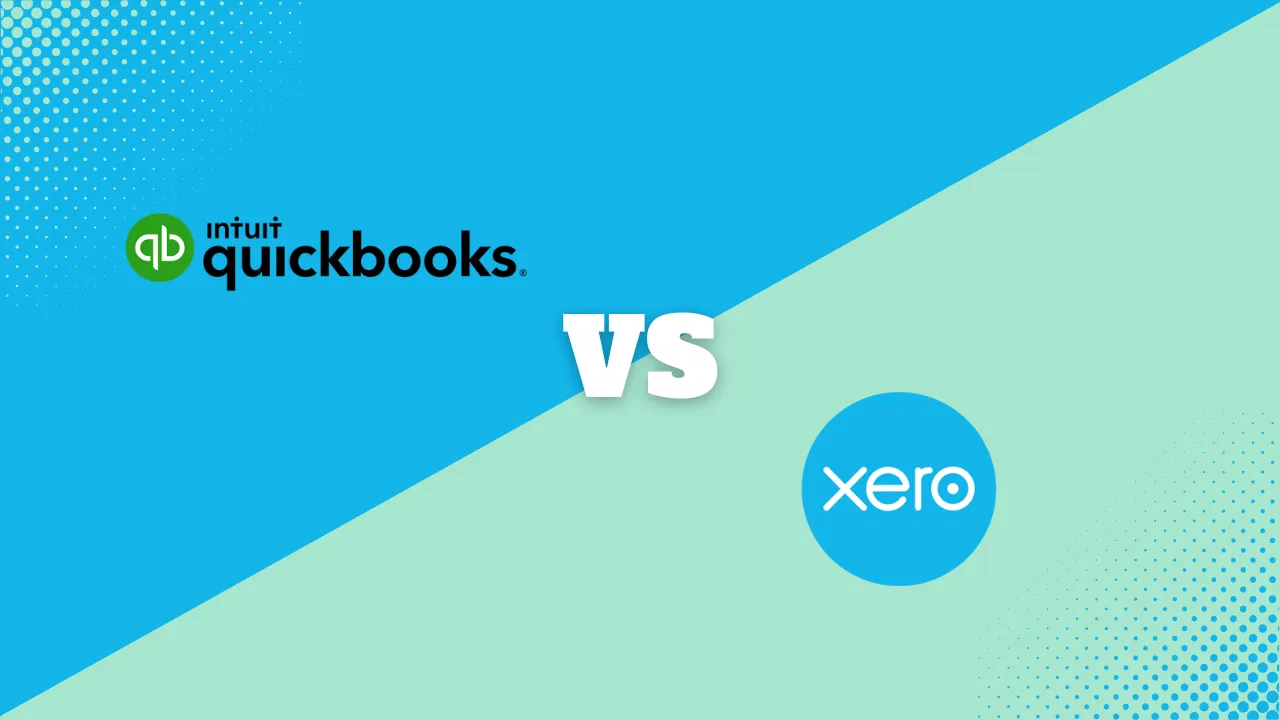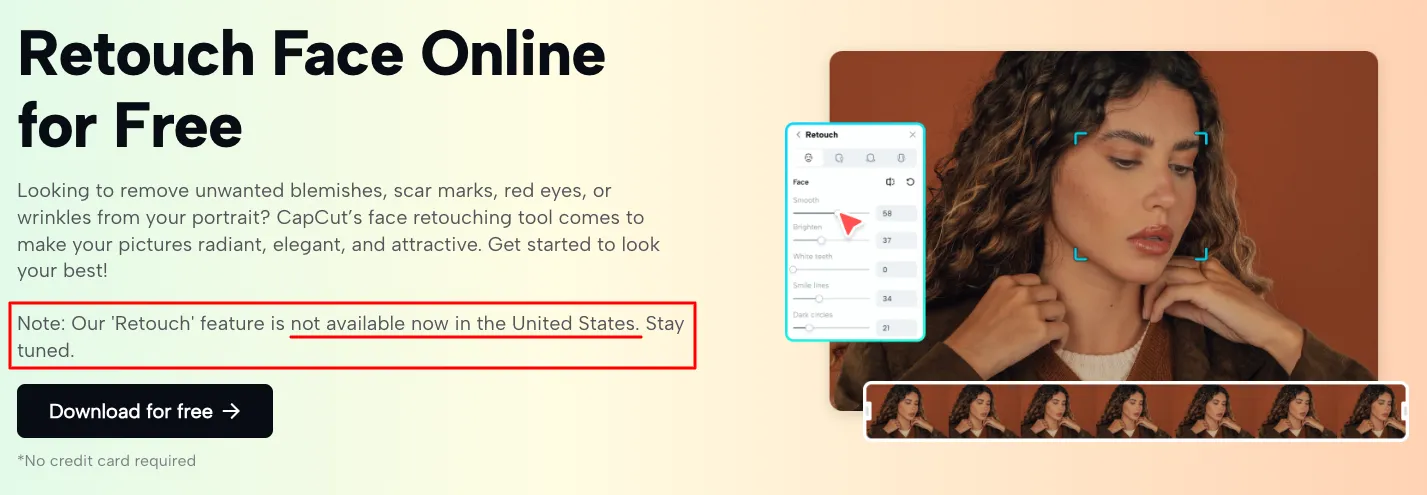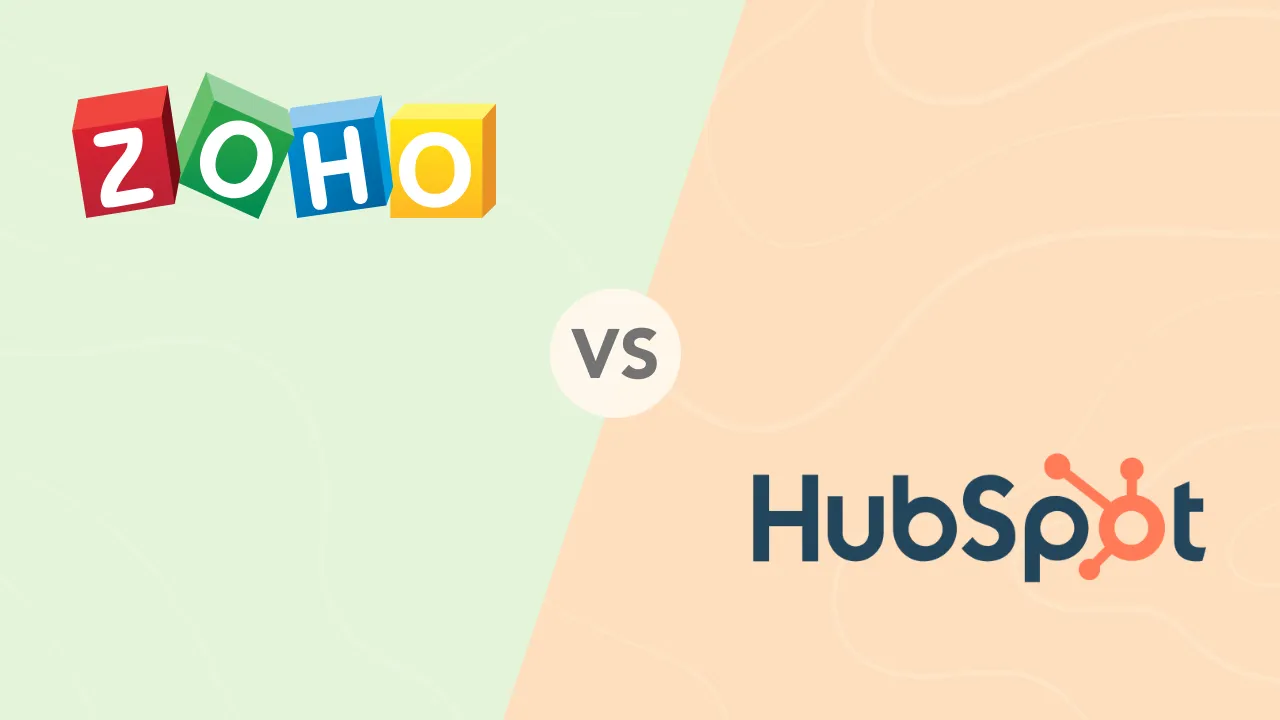CRM: How to Choose the Right One for Your Business?
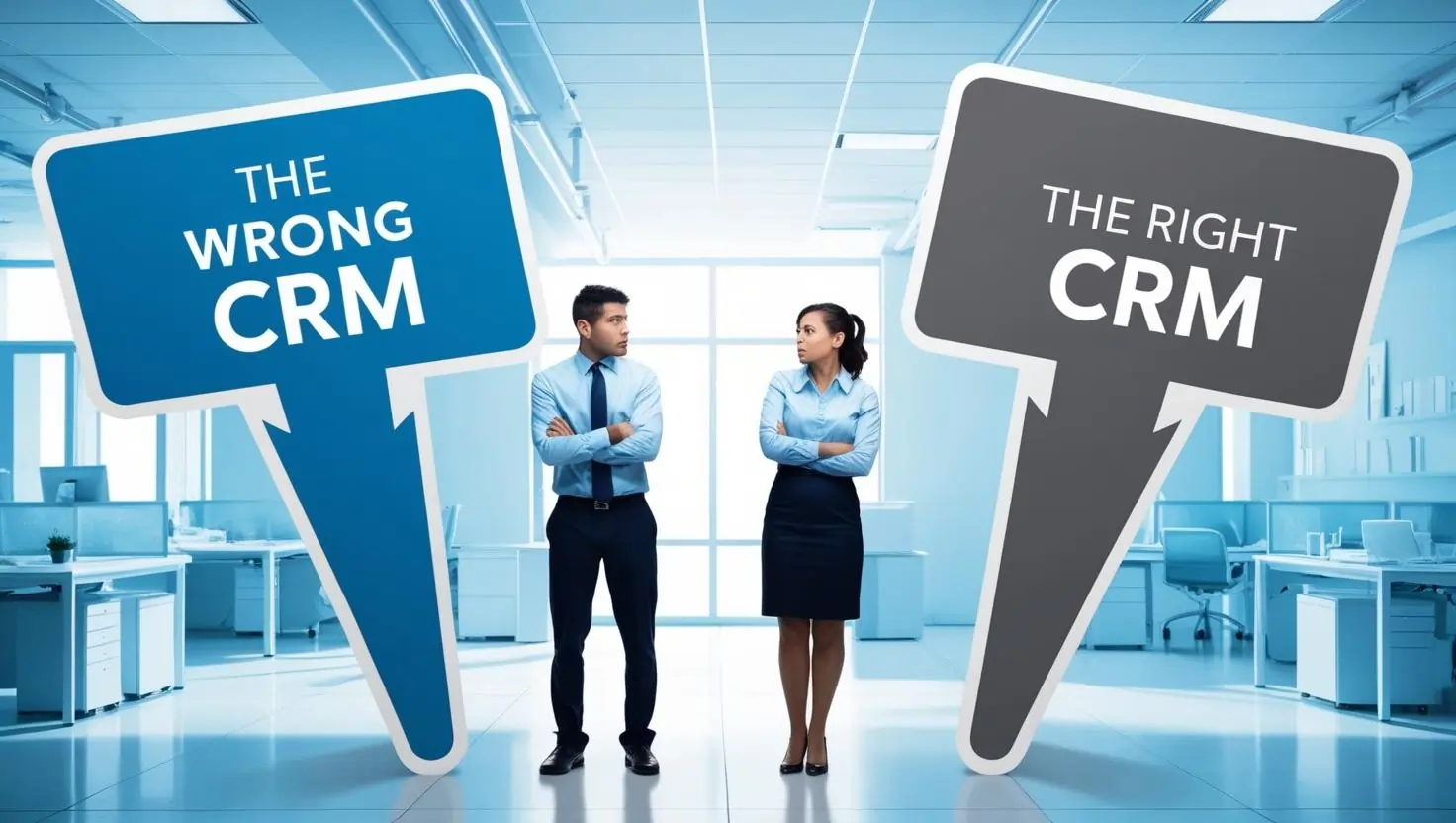
For centuries, shop owners and barkeeps have understood the value of nurturing strong customer relationships to ensure loyalty and repeat business. This timeless principle lies at the heart of Customer Relationship Management (CRM) today.
Statistics have proven that using a CRM system can increase your sales by up to 30%. However, knowing that you need a CRM system and choosing one that fits your business processes are very different. Choosing the right CRM platform can be challenging, with numerous possibilities and vendors.
A forecasted rate of 1.5 means that your business can expect an average ROI of $45.7 for every $1 spent in CRM software. However, the important thing is to land in the upper segment of this average to maximize your results. We’ll discuss the features and benefits of a CRM system, as well as insights on what you need to consider when choosing a CRM system for your business.
What is Customer Relationship Management?
What is Customer Relationship Management today, how it began, and how can you leverage it for your business?
Definition and Purpose of CRM
Customer Relationship Management (CRM) is a strategic approach designed to manage customer interactions and relationships throughout the entire customer lifecycle. The primary goal of CRM is to enhance customer satisfaction, loyalty, and retention by delivering a personalized and tailored experience.
CRM software and systems enable businesses to collect, analyze, and utilize customer data effectively. This data-driven approach informs sales, marketing, and customer service strategies, ensuring that every customer interaction is meaningful and contributes to building stronger customer relationships.
Brief History and Evolution of CRM
The concept of Customer Relationship Management has been around for several decades, but it wasn’t until the 1990s that the term “CRM” was officially coined. Initially, CRM systems focused primarily on sales force automation and customer service management. Over the years, CRM has evolved significantly, incorporating marketing automation, social media integration, and advanced analytics.
Today, CRM is a critical component of business strategy, enabling companies to build and maintain strong, long-term relationships with their customers through a comprehensive understanding of their needs and behaviors.
Benefits of CRM
There is a long list of benefits that come with utilizing CRM software. Let’s take a quick look at some of them:
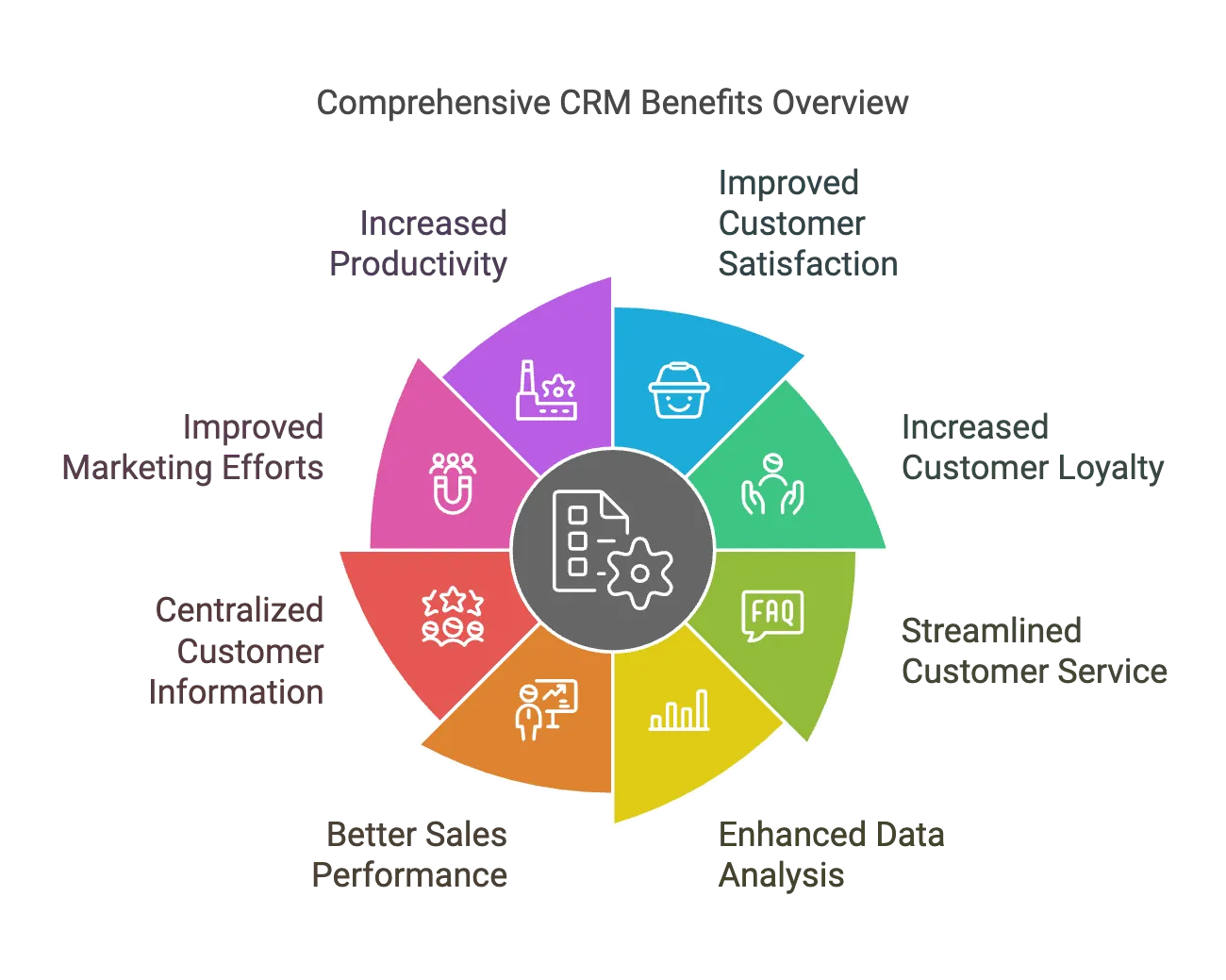
- Improved customer satisfaction: CRM systems help businesses personalize interactions, enhancing the overall customer experience.
- Increased customer loyalty: By addressing customer needs proactively, businesses build long-term relationships and trust and improve their brand awareness.
- Streamlined customer service: CRM tools enable businesses to track and resolve customer complaints more efficiently.
- Enhanced data analysis: Provides valuable insights into customer behavior and preferences to inform business strategies.
- Better sales performance: Helps sales teams track leads, manage pipelines, and close deals more effectively.
- Centralized customer information: Stores all customer data in one place for easy access and collaboration across teams.
- Improved marketing efforts: Enables targeted campaigns through segmentation and automation.
- Increased productivity: Automates repetitive tasks, allowing employees to focus on higher-value activities.
- Forecasting and decision-making: Analyzes trends and patterns to support strategic planning.
- Stronger team collaboration: Facilitates better communication and coordination between sales, marketing, and support teams.
- Higher customer retention rates: Identifies at-risk customers and enables businesses to re-engage them effectively.
- Scalable solutions: CRM systems grow with your business, accommodating more customers and complex processes.
- Improved reporting and tracking: Generates detailed reports on sales performance, customer interactions, and campaign effectiveness.
- Mobile accessibility: Many CRM tools offer mobile apps for on-the-go access, enhancing flexibility for remote teams.
- Integration with other tools: Connects seamlessly with applications like email accounts, marketing automation, and accounting software.
Recommended CRM Software for Small Businesses:
- Monday CRM: Customizable workflows and visual tools to streamline collaboration, project tracking, and lead management.
- HubSpot: Integrated marketing, sales, and service tools with automation and analytics to drive business growth.
- Salesforce: AI-powered insights and enterprise scalability for efficient sales and superior customer management.
The Core Features Set of Customer Relationship Management
Most CRM systems offer a specific set of features that are required for businesses to succeed, regardless of size and industry.
These systems offer essential customer relationship management tools that facilitate the management of interactions with customers throughout their journey, helping businesses manage customer relationships effectively. These features include contact management, communication tracking, and workflow automation.
1. Contact Management and Customer Data
Contact management features are the pillar of any CRM system. CRM software was created to perfect contact management and close more deals in the first place by enabling sales and marketing teams to manage customer data effectively.
In the case of some CRM systems like Pipedrive, contact management features include live chat and social media updates, qualifying and routing leads to corresponding sales reps, and allowing tips to book meetings with your team members through the app’s calendar.
- Features: Centralized storage of customer information, including names, contact details, purchase history, and preferences. Includes features like lead stages, lead scoring, custom fields, labels, and filters to manage and organize customer data effectively.
2. Communications Tracking
Customer engagement and communications tracking features refer to phone, email marketing, meetings, live chat, and all other contact interactions and communication history. These features compile all the data into a single dashboard, giving you complete visibility and control over your schedule.
- Features: Importing existing contacts, email sync, tracking open email rates and click rates, utilizing pre-made templates, call logging, call recording, reminders and notifications, and the activity calendar.
3. Workflow Automation
Workflow Automation isn’t considered a core feature if you look at the history of CRM systems. However, modern ways of doing business benefit from automation so much that we think it’s an essential aspect of any current CRM system. The fact that your team gets to eliminate repetitive tasks and organize both marketing and sales workflows per your company’s processes is invaluable. Moreover, workflow automation allows you to improve contact management through multiple means, depending on your vendor, and effectively manage different phases of sales cycles.
While most leading free CRM vendors quickly check all of the above-mentioned boxes, you’ll find many differences and unique features with every tool.
- Features: Automates repetitive tasks like follow-ups and lead qualification, streamlines sales and marketing workflows, and improves efficiency throughout the customer journey.
4. Customizability
Every great CRM solution needs to fit your business processes perfectly. However, it’s extremely hard to find a tool that seems to be made for your individual case. This is where customizability steps in, playing a crucial role in managing customer relationships. Most leading CRM systems offer various degrees of customizability ranging from dashboards, tasks, and reports customization to be able to change and adapt everything, down to the smallest detail.
Again, the amount of customizability you want heavily depends on your business. The rule of thumb is to look for at least some amount of customizability for every feature offered by the vendor. This leaves a larger room to experiment with multiple approaches regarding customer management until you find the sweet spot.
- Features: Allows businesses to tailor dashboards, reports, tasks, and fields to fit unique processes and goals.
5. Integrations for Sales and Marketing Teams
Your CRM system has to complement your existing business process and not force you to start everything from scratch. For this reason, it’s important to consider how well does the potential CRM play with your email marketing, project management, accounting, communication, and other tools, especially in supporting customer service representatives. Most leading CRM vendors have a dedicated integrations section on their official website which will tell you the information you need to shortlist the best candidates.
- Features: Seamlessly connects with email marketing, project management, accounting, and customer support tools to enhance team collaboration and efficiency.
6. Mobile App
It’s highly recommended only to choose CRM vendors that have a mobile app unless the rest of the features match your business processes perfectly. The thing is that nowadays, customers are most commonly mobile-oriented, and you need a system to be where they are. Also, having any time, anywhere access to data allows your sales team to respond to customer concerns, queries, and needs faster, with more accuracy, and highly increases the effectiveness of your “in-the-field” sales reps.
- Features: Provides on-the-go access to CRM features, enabling sales reps to respond to customer queries and manage tasks from anywhere.

7. Reporting and Analytics
Close to all CRM vendors offer reporting and analytics features. The range is extremely vast, from basic, list-based reports to complex, dynamic dashboards. However, as with many other tools, you don’t want to go after the most visual and complex features, if you don’t really need or understand how to use them properly. The amount of reporting options you need directly depends on your industry, business size, and customer base. If you’re unsure, we recommend choosing a system that offers deals, sales, leads, timeline, and sales forecast reports, which are essential for effective sales forecasting using predictive AI algorithms.
- Features: Offers insights into sales performance, lead progress, timelines, and sales forecasts through customizable reports and dashboards.
Advanced Features of CRM
Apart from the core set of features, many CRM vendors have additional functionalities that come in various forms, shapes, and sizes. CRM platforms are continuously evolving in response to market demand, enhancing customer experience and shaping future trends.
For instance, Copper CRM is natively integrated with G-suite, which allows you to manage contacts, update deals, and schedule appointments right from your Gmail inbox. Other vendors like Freshsales have many other tools related to accounting and free project management, which work extremely well together.
Here are some of the advanced features that might suit your specific needs:
-
Social media integration: Connects with platforms like Facebook, LinkedIn, and Twitter to track and engage with customer interactions on social channels.
-
AI-driven insights: Uses predictive analytics and machine learning to forecast sales trends, suggest next steps, and identify high-value leads.
-
Sales pipeline management: Visualizes and tracks the progress of deals through various stages of the sales cycle for better oversight and planning.
-
Live chat and chatbot functionality: Offers real-time communication with customers and automated chat responses to improve customer service and engagement.
-
Email campaign automation: Enables businesses to design, schedule, and track email campaigns directly from the CRM platform.
-
Collaboration tools: Provides shared workspaces, file sharing, and team activity tracking to enhance communication within teams.
-
Third-party integrations: Extends functionality through APIs and integrations with tools like G-suite, Microsoft Office, and e-commerce platforms.
-
Scalability: Ensures the CRM can grow with your business, accommodating more users, data, and advanced features as needed.
-
Custom reporting and dashboards: Offers dynamic, interactive dashboards tailored to specific KPIs and metrics.
-
Customer self-service portals: Allows customers to access their information, track support tickets, or update details independently.
-
Territory and quota management: Helps sales teams assign leads or customers based on geographic or demographic criteria and set measurable goals.
Every business is unique in terms of growth dynamics, customer base, and processes. This is why it’s important to consider the added functionalities and focus on what you need the most. Modern CRM tools make migrating your existing data to a new platform extremely easy, so you’ll not have any problems there.
How to Choose the Right CRM for Your Business
Selecting the perfect CRM for your business is a crucial decision that can greatly impact your operations and customer relationships. Follow these steps to ensure you choose the right CRM solution tailored to your needs.
Step 1: Assess Your Business Needs
- Identify your primary goals for implementing a CRM (e.g., improving customer retention, increasing sales, streamlining workflows).
- Evaluate your current challenges in customer management and communication.
- Consider your team size, growth plans, and technical expertise to determine the scale of CRM required.
Key questions to ask:
- How much automation do you need?
- How do you capture and classify leads?
Step 2: Identify Essential Features
- List the core features you require, such as contact management, communication tracking, workflow automation, and reporting.
- Ensure the CRM offers basic functionality that supports your daily operations and aligns with your business processes.
Key considerations:
- Do you need integration with tools like email platforms, project management software, or accounting systems?
- Are mobile access and scalability important for your team?
Step 3: Consider Advanced Features
- Determine if advanced features like AI-driven analytics, social media integration, and sales forecasting are necessary.
- Evaluate whether you need tools for email campaign automation, live chat, or territory management.
Key questions to ask:
- What type of communication platforms do your customers use?
- Do you require predictive analytics or tailored dashboards to track performance?
Step 4: Check for Customizability
- Ensure the CRM allows you to customize fields, dashboards, workflows, and reports to match your unique business processes.
- Consider whether the level of customizability offered by the vendor aligns with your current and future needs.
Step 5: Evaluate Ease of Use
- Test the user interface to ensure it’s intuitive and easy for your team to adopt.
- Check if the vendor offers training resources, onboarding support, or tutorials to help your team get started.
Step 6: Review Integration Capabilities
- Confirm that the CRM integrates seamlessly with your existing tools and platforms.
- Look for integrations with email marketing, social media, e-commerce, or customer support tools to enhance productivity.
Recommended Email Marketing Software
- Constant Contact: User-friendly email marketing with customizable templates, automation, and analytics to grow audience engagement.
- Brevo (formerly Sendinblue): All-in-one platform offering email, SMS, and automation tools to streamline communication and drive conversions.
- SendGrid: Scalable email delivery with advanced APIs, analytics, and personalization for businesses of all sizes.
Step 7: Analyze Reporting and Analytics
- Ensure the CRM provides insightful reports and analytics that meet your specific needs.
- Look for dashboards that display key metrics, sales forecasts, and lead progress in a way that’s easy to understand.

Step 8: Test Mobility and Accessibility
- Verify that the CRM includes a mobile app for on-the-go access.
- Confirm that team members can securely log in from any location to manage tasks and respond to customer queries.
Step 9: Evaluate Scalability and Pricing
- Choose a CRM that can grow with your business, accommodating more users, data, and features as needed.
- Compare CRM pricing plans to ensure they align with your budget and provide value for your investment.
- Make sure to set the budget aside for an ongoing CRM subscription.
Step 10: Request a Demo or Free Trial
- Use a free trial or demo to explore the CRM’s interface, features, and usability.
- Engage your team in the trial to gather feedback and ensure it meets their needs.
Step 11: Assess Vendor Support
- Check the vendor’s reputation, customer reviews, and quality of support.
- Ensure they offer timely assistance, training resources, and clear documentation.
By following this step-by-step guide, you can systematically evaluate CRM options and choose a solution that aligns perfectly with your business goals, processes, and customer needs.
Don’t Build Your Own CRM Software
Many established businesses consider building a custom CRM system as an attractive solution, but 9 out of 10 regret their decision in a couple of weeks. Apart from the functionality, there are many things you need to take care of including servers, maintenance, keeping up with software and operating system updates, improvements, and support. Data security is another key concern and although there is a high chance that a custom CRM solution will be on-premises, you’ll still need to spend a hefty sum to cover the basic set of required tools.
All of this comes at a very high cost, not to mention the extra personnel, and the truth is, it’s a poor investment decision. Modern CRM solutions like HubSpot have already taken care of everything you’ll ever require from a robust CRM system. Furthermore, CRM software doesn’t cost a fortune, especially when considering cloud-based solutions.
Final Thoughts
Customer relationships have always been at the heart of successful businesses, and today, a CRM system can take that connection to the next level. By helping you manage interactions, track customer data, and automate repetitive tasks, the right CRM can increase your sales, improve customer loyalty, and boost productivity.
Choosing the right CRM doesn’t have to be overwhelming. By focusing on your business needs, asking the right questions — like how much automation you require or what communication platforms your customers use — and testing features that align with your goals, you can find a solution that’s a perfect fit. Remember, a good CRM is not just a tool; it’s an investment in your business’s growth and customer satisfaction.
Whether you’re a small business looking to streamline your operations or a growing enterprise seeking advanced functionality, the right CRM can be your key to building stronger customer relationships and staying ahead of the competition. Take your time, explore your options, and choose a system that empowers your team to deliver exceptional customer experiences every day.
FAQs
Q: What is a CRM system, and why is it important for businesses?
A: A CRM (Customer Relationship Management) system helps businesses manage customer interactions, track data, and streamline workflows. It’s essential for improving customer satisfaction, increasing sales, and building long-term loyalty.
Q: How do I know which CRM features are essential for my business?
A: Start by identifying your needs, such as contact management, communication tracking, and workflow automation. Consider advanced features like AI-driven analytics or social media integration if they align with your goals.
Q: Can a CRM system integrate with other tools my business uses?
A: Yes, most CRMs integrate with tools like email marketing platforms, accounting software, and project management systems, ensuring seamless collaboration across your team.
Q: Is a CRM system suitable for small businesses?
A: Absolutely. Many CRM solutions are designed to be affordable, scalable, and user-friendly, making them ideal for small businesses looking to improve customer relationships and streamline operations.
